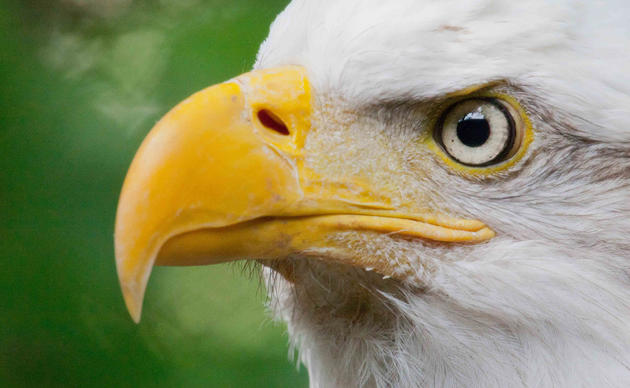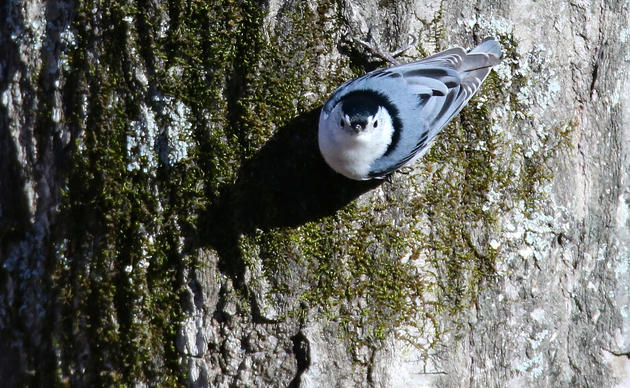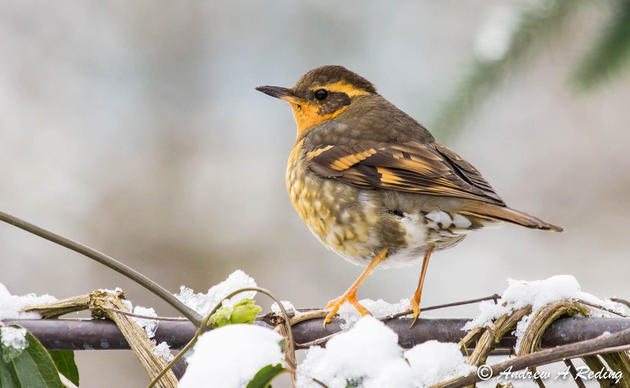Bird conservation in a changing climate requires bold investments in the health of our land and waters and smart planning for climate change. The 2023 legislative session provides an opportunity to advance policies and conservation funding for the benefit of birds and the places they need. Our top priorities this session will advance climate-smart land-use planning, Puget Sound recovery and resilience, and shrub-steppe protection and stewardship. We’re also supporting an ambitious funding request by the Washington Department of Wildlife for biodiversity conservation that will have wide-ranging benefits across our state.
Make sure you're part of our ACTION NETWORK, so you can stay up-to-date on all the opportunities to speak up for the birds.
CLIMATE AND CLEAN ENERGY
Audubon's climate and clean energy priorities call on Washington legislators to enact policies that drive smart planning for climate change, invest in comprehensive climate solutions, and promote responsible siting of clean energy.
Ensuring that Washington communities are prepared for climate change means that we must update our state’s Growth Management Act (GMA) and Shoreline Master Plans (SMPs) to include climate resilience. The GMA is a key policy that governs wise land use and conservation in our state. Under a proposed bill to update the GMA, counties would be required to plan for emission reductions, affordable housing and climate resilience. A key provision in the bill would also require future Shoreline Management Plans to address sea level rise. We think this kind of climate-smart planning is good for birds and people. The Legislature stopped short of passing the bill last year and together, we’ll urge them to finish the job in the 2023 session.
Another top climate priority this year relates to revenue from the Climate Commitment Act (CCA), a sweeping bill that the legislature passed in 2021. The CCA sets a price on carbon emissions, provides a mechanism to reduce climate pollution, and generates revenue to invest in comprehensive climate solutions and local communities. The first round of spending from the CCA will be in the 2023-25 budget and revenue projections continue to grow. With a looming recession, an influx of federal money, and CCA Accounts flush with cash, there is a significant risk that the legislature may reappropriate funds to other purposes - weakening the ability of the law to address climate change. We are working alongside partners in the Environmental Priorities Coalition to ensure that CCA revenue goes toward climate solutions and local communities.
In 2022, we helped support passage of HB 1814, which included precedent-setting language defining ‘preferred sites’ for solar energy development in state law. HB 1814 brings the benefits of solar energy to vulnerable communities and protects birds from solar development by guiding projects towards buildings, parking lots, and other locations that don’t displace wildlife habitat or prime farmland. Today, we are working to advance a proposed bill that would support the rapid and responsible deployment of clean energy at ‘preferred sites’, and other least conflict lands, and foster collaboration between state and local government.
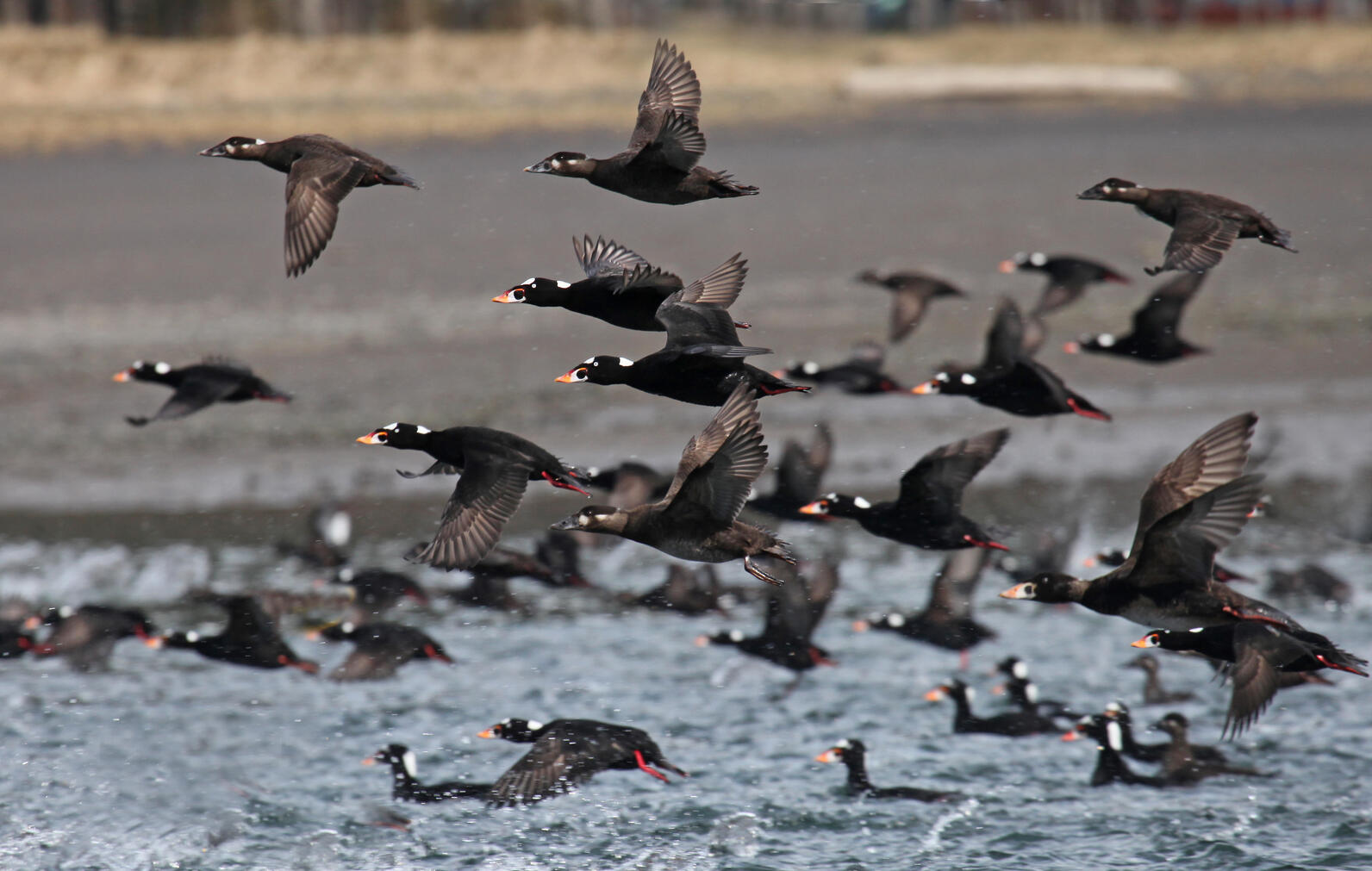
COASTAL CONSERVATION
Audubon’s coastal conservation priorities call on Washington legislators to fund programs that support the protection and restoration of Puget Sound shorelines and estuaries.
Puget Sound shorelines and nearshore areas are vital rearing habitat for forage fish, and the salmon, whales and marine birds that rely on them. Decades of shoreline development have severely degraded habitat conditions in many places, and the state lacks a comprehensive inventory of the extent and location of shoreline armoring (e.g., rip-rap, seawalls) and other structures in the nearshore zone. Audubon and our partners are supporting legislation that creates a state program for a biennial shoreline assessment. This program will generate baseline information that is crucial for tracking nearshore habitat conditions and changes in the extent of shoreline armoring and structures over time. A bill supporting this shoreline assessment had bipartisan support in 2022; we’re asking legislators to support it again this year. We’re also asking legislators to create a revolving loan fund for landowners that would want to remove hard armoring and restore their shorelines.
Our other top priority for Puget Sound is funding for key capital budget programs like the Puget Sound Acquisition and Restoration Fund (PSAR), Estuary and Salmon Restoration Program (ESRP), and Washington Wildlife and Recreation Program (WWRP) that support conservation and outdoor recreation opportunities. The legislature funded these programs at near-record levels in 2021. Investing in nature is good for birds and people; we’re asking legislators to keep the momentum going by fully funding these programs in the next biennium.
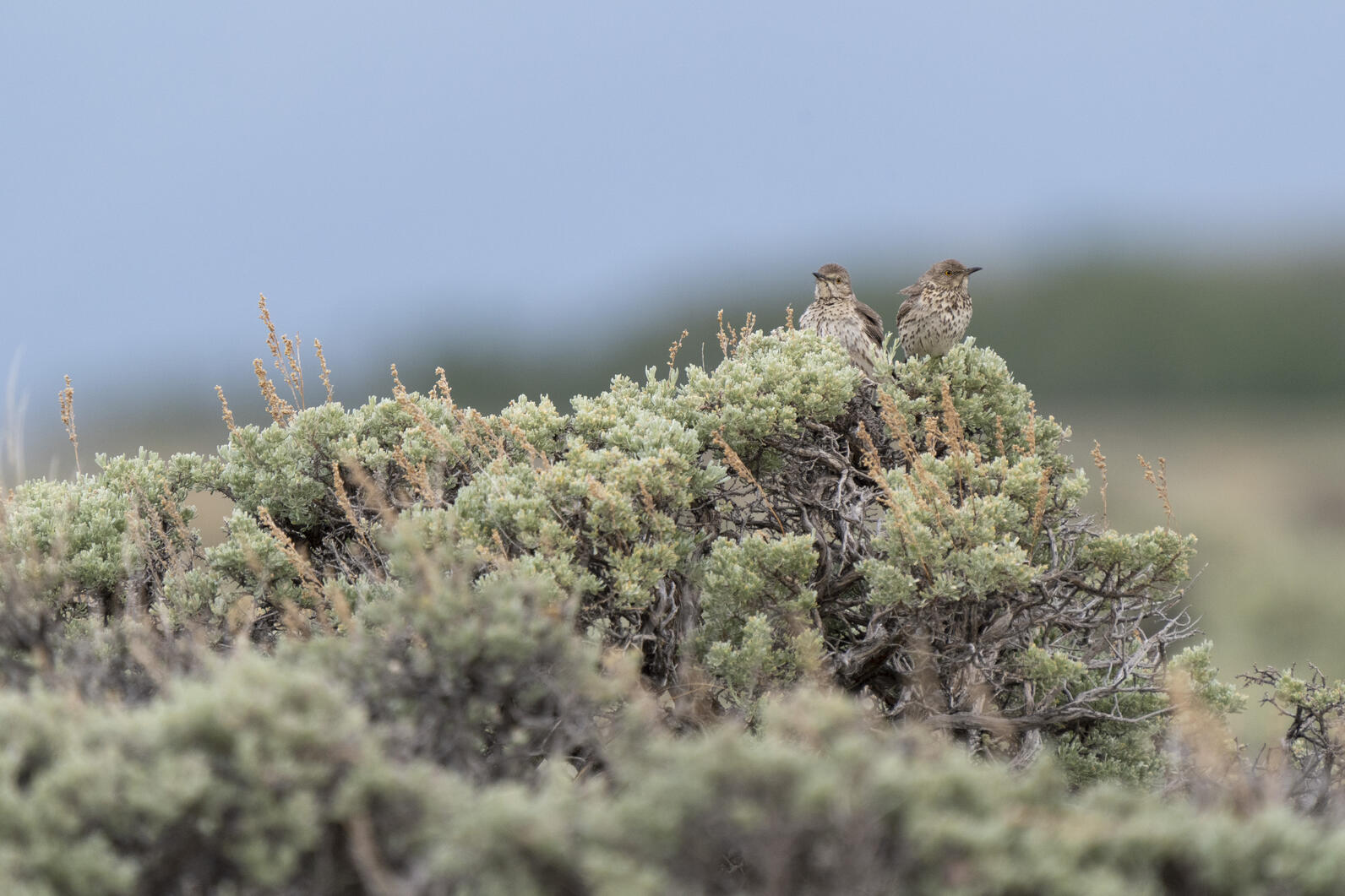
PROTECTING THE SHRUB-STEPPE
Audubon’s shrub-steppe conservation priorities call on Washington legislators to fund programs that support private landowners’ ability to steward healthy landscapes
The shrub-steppe is an arid ecosystem that once covered over 10 million acres in Eastern Washington. Today, 80% of historic shrub-steppe has been lost or degraded. In 2020 alone, 600,000 acres of this imperiled landscaped burned, further threatening the critically endangered Greater Sage-grouse and the Columbia basin pygmy rabbit. The 2021 Washington State Legislature appropriated $2.35 million for the creation of the Washington Shrub-steppe Restoration and Resiliency Initiative (WSRRI), which is aimed at improving fire resilience and resistance. Audubon has worked with WSRRI partners to create a suite of goals and associated actions to promote ecosystem resistance and resilience to fire and landowner preparedness and response. In the meantime, the Washington State Conservation Commission (SCC) has requested $1.5 M of capital funding to continue funding wildlife friendly fencing projects, a high priority need identified by the WSRRI and one that Audubon supports.
The SCC has also requested $10 M in operating funds for Conservation Technical Assistance to build capacity for voluntary stewardship of natural resources on private lands. As human population pressure increases on our public lands, there is an urgent need for habitat protection, stewardship and restoration on private lands across the state. Conservation districts are trusted, non-regulatory, community-based entities, uniquely positioned to develop relationships with private landowners and provide appropriate site-specific conservation expertise. We think this is a wise investment in private land stewardship and urge the legislature to support their request.
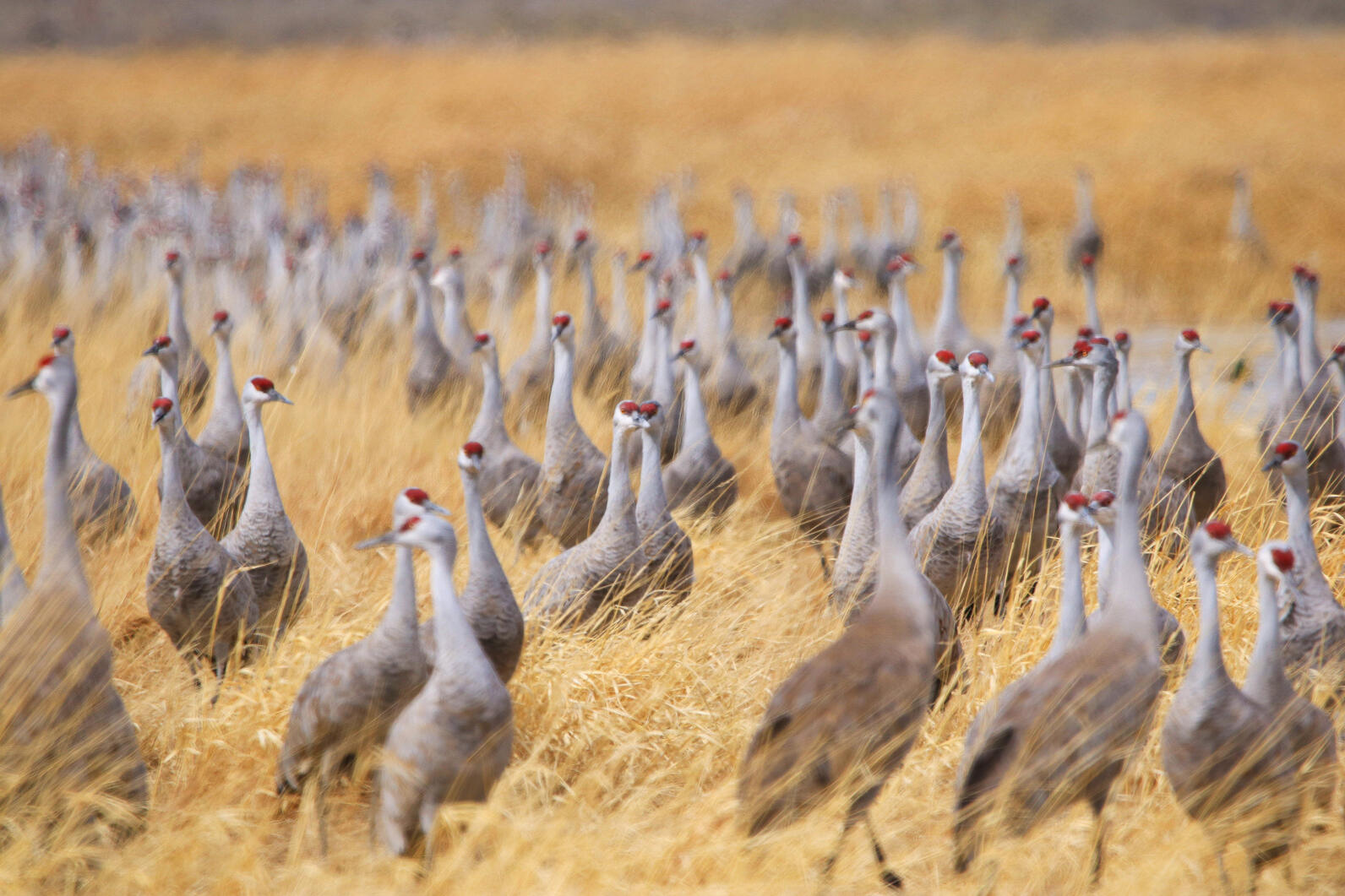
INVESTING IN WASHINGTON’S BIODIVERSITY
Audubon calls on Washington legislators to fund the Department of Fish and Wildlife at levels that reflect our state’s love of fish and wildlife and our commitment to stewarding nature for the benefit of current and future generations.
Washington state is experiencing unprecedented losses of biodiversity, and habitat loss, degradation, climate change, pollution, and many other pressures are increasingly threatening fish and wildlife across our state. Although WDFW has a comprehensive plan known as the State Wildlife Action Plan to address the needs of the 268 Species of Greatest Conservation Need that have been identified as in need of increased management and monitoring, they lack the resources to implement conservation actions for 95% of these species. Without adequate funding to support non-game wildlife conservation, we can expect to see increased federal Endangered Species Act (ESA) listings with additional regulatory burdens for communities, a devastating loss of biodiversity, and irreversible impacts to Washington’s economy and public health. We strongly support the Department’s $47.6 M request for biodiversity conservation and $3.8M request for climate resilience and urge the legislature to do the same.

